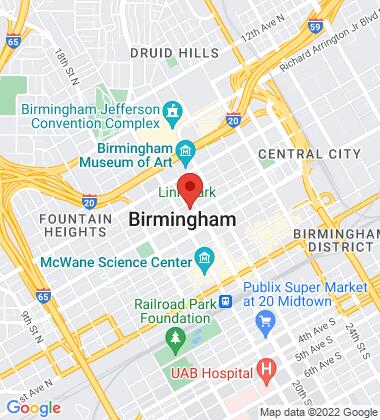From Arrest to Release or Detention
The criminal justice system is complex, and if a person has been charged with a crime, there are various processes they must go through. In Part 1 of this blog, we’ll look at from when an arrest is made to release or detention. In Part 2, we’ll examine the processes from a trial to a verdict.
An Arrest Warrant or Summons Issued
When you think of a person being charged with a crime, an officer placing a suspect in handcuffs might come to mind. However, that’s only one of the ways in which a person could be held to answer for an alleged offense.
In Alabama, a criminal trial can begin in one of the following ways:
- Summons: If probable cause exists, a judge may issue a summons, which contains a date and time that a person must appear before a judge. Generally, this happens when the suspected individual is not already in custody, the offense they allegedly committed is bailable, and it’s assumed they will appear in court as ordered by the summons. The summons might also order them to appear for fingerprinting and photographing. If they do not show up either to court or the fingerprinting/photographing session, a warrant will be issued for their arrest. The summons will be served either directly by an officer or through certified mail that requires a signed receipt.
- Arrest warrant: An arrest warrant is different from a summons in that an officer can arrest a person and take them to jail until they can be seen by a judge, which must occur within 72 hours. Any Alabama law enforcement officer can execute an arrest warrant.
- Arrest without a warrant: In cases in which an officer directly observes an offense being committed, or has probable cause to believe a felony has been or will be committed, they can arrest the suspect on the spot, without first having received a warrant.
Scheduled for an Initial Appearance
After law enforcement officers have made an arrest, the individual will be given a date and time to appear in court.
During the initial appearance, the judge will:
- Read the charges;
- Let the defendant know they have the right to be represented by a lawyer; and
- Determine if they can be released and under what conditions
If they’ve been charged with a felony, they’ll also be informed of their right to a preliminary hearing. If they choose to exercise this right, their hearing will be held within 21 days of their request.
In cases in which their preliminary hearing can’t happen within 21 days, they may be released from custody (unless they’ve been accused of a non-bailable offense).
What Happens at a Preliminary Hearing?
Although a preliminary hearing is still a proceeding that happens in court, it is not the actual trial, and the rules are a little different. For instance, unlawfully obtained evidence may not be tossed out, and hearsay may be admissible. During the hearing, the prosecutor will work to prove that there is probable cause the defendant committed the alleged offense, while the accused and their lawyer argue that there isn’t.
If the judge determines probable cause exists, they will either order that the defendant be held in custody or be released on certain conditions. The prosecutor may then present the case to a grand jury.
On the other hand, if the judge decides that probable cause did not exist, the charges will be dismissed. However, this does not mean that the defendant can’t be prosecuted for the same offense.
Conditions of Release
When a person is arrested on suspicion of committing an alleged offense, they’ll be held in custody until trial. They can be released if a judge decides doing such does not pose a risk to society.
When a person is released from custody, mandatory conditions will be imposed, including:
- Appearing at court on a specified date and time;
- Refraining from committing any crimes;
- Not leaving the state (unless they have permission from the court);
- Informing the court of any change of address
Learn More Next Week
The next step in the criminal justice process is the arraignment. In Part 2 of this blog series, we’ll discuss what happens before, during, and after a trial.
If you’ve been charged with an offense, such as a DUI or property crime, in Birmingham, call Tidwell Law Group, LLC at (205) 536-7770 or contact us online to discuss your circumstances, the processes you might go through, and your legal options.

